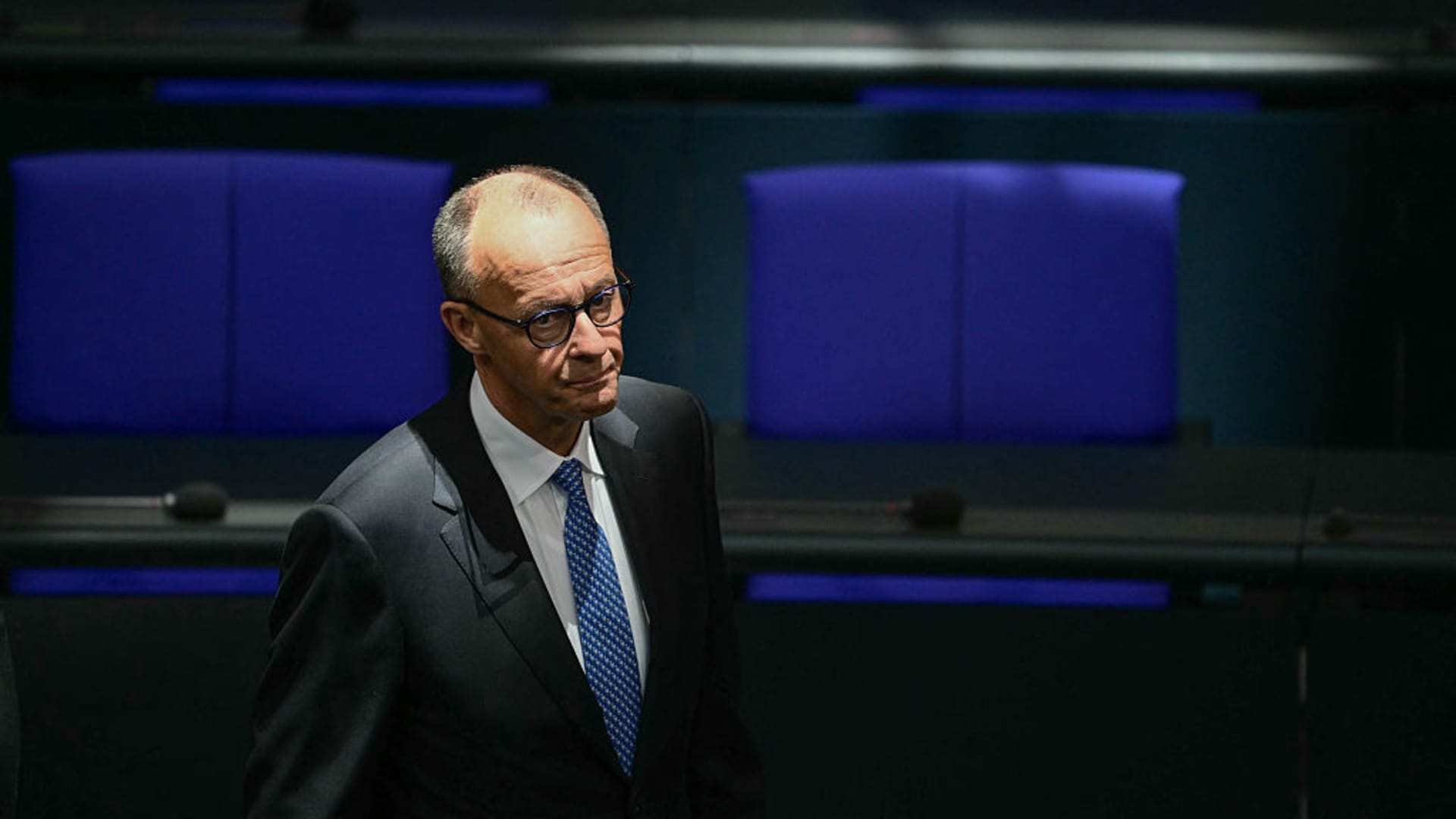The Unprecedented Election of Friedrich Merz as German Chancellor
Shifting Political Tides
The political landscape in Germany experienced a seismic shift on a fateful Tuesday. Friedrich Merz, the conservative leader, found himself in an unprecedented situation when he failed to secure the necessary parliamentary votes in the first round to become the country’s next chancellor. This unexpected turn of events sent shockwaves through the political establishment and raised eyebrows across the globe. Merz, who had been widely anticipated to win the vote and steer Europe’s largest economy, fell short by a mere six votes, securing only 310 out of the required 316 votes in the Bundestag.
A Historic Milestone
The failure of Merz to clinch the chancellorship in the first round marked a historic first in Germany’s postwar history. Never before had a chancellor-designate failed to win an absolute majority in the initial vote. This unexpected defeat plunged the Bundestag into chaos, with members scrambling to comprehend the implications of Merz’s setback. The conservative alliance of the Christian Democratic Union (CDU) and the Christian Social Union (CSU), led by Merz, had topped the polls in the national elections in February with 28.5 percent of the vote. However, this popular support did not translate into the parliamentary backing needed to secure the chancellorship.
Navigating the Aftermath
The aftermath of the first vote was a whirlwind of confusion and uncertainty. The Bundestag, Germany’s lower house of parliament, was in turmoil as members grappled with the repercussions of Merz’s defeat. The conservative leader, who had been expected to sail through the vote, found himself in uncharted territory. The failure to secure the chancellorship in the first round was described by some as a “complete catastrophe” and a “humiliating” blow for Merz and his coalition. The political establishment was left reeling, and the stability of the new coalition government hung in the balance.
The Crucial Second Round
In a dramatic twist, the Bundestag reconvened later in the day for a second vote. This round was pivotal for Merz and his coalition, offering a lifeline to secure the necessary majority. The second vote was a nail-biting affair, with the outcome hanging in the balance until the very end. Ultimately, Merz secured 325 votes, just above the 316 needed to win, and was elected as Germany’s new chancellor. The relief was palpable, but the narrow margin of victory raised questions about the stability of the new government and the challenges it might face.
The Significance of the Second Vote
The second vote was a dramatic and unprecedented event in German politics. Merz’s ability to secure the necessary votes in the second round demonstrated his resilience and the strength of his coalition. However, the narrow margin of victory and the unexpected setback in the first round highlighted the deep divisions within the Bundestag and the challenges that lay ahead. The political turmoil of the day served as a stark reminder of the unpredictability of politics and the importance of perseverance in the face of adversity.
A Narrow Margin of Victory
Merz’s victory in the second round was a narrow one, with a margin of just nine votes. This slim margin underscored the deep divisions within the Bundestag and the challenges that Merz and his coalition would face in the coming months. The fact that Merz was able to secure the necessary votes in the second round was a testament to his leadership and the strength of his coalition. However, the narrow margin of victory served as a reminder of the political turmoil that had gripped Germany in recent days.
The Challenges Ahead
As Merz prepares to take the reins of Germany’s government, he faces a series of significant challenges. The economy is struggling with its longest post-war downturn, relations with key allies such as the United States are strained, and the far-right is gaining momentum. Merz will need to navigate these challenges with a steady hand, balancing the needs of his coalition with the demands of the German people. The road ahead is fraught with difficulties, but with a clear vision and resolute leadership, Merz has the potential to guide Germany through these turbulent times.
A New Era in German Politics
The election of Friedrich Merz as Germany’s new chancellor marks the beginning of a new chapter in the country’s political history. The unprecedented events of that Tuesday serve as a reminder of the unpredictability of politics and the importance of resilience in the face of adversity. As Merz takes the helm of Europe’s largest economy, he will need to draw on his experience and leadership to guide Germany through the challenges that lie ahead. The political landscape may be uncertain, but with a steadfast approach, Merz can steer Germany towards a brighter future.
Conclusion
A Resilient Leader Emerges
The election of Friedrich Merz as Germany’s new chancellor is a testament to his resilience and the strength of his coalition. The unprecedented events of that Tuesday served as a reminder of the unpredictability of politics and the importance of perseverance in the face of adversity. As Merz takes the reins of Germany’s government, he will need to draw on his experience and leadership to navigate the challenges that lie ahead. The road ahead is fraught with difficulties, but with a steady hand and a clear vision, Merz has the potential to guide Germany through these turbulent times and into a brighter future. The political landscape may be uncertain, but with resolute leadership, Germany can emerge stronger and more united.

